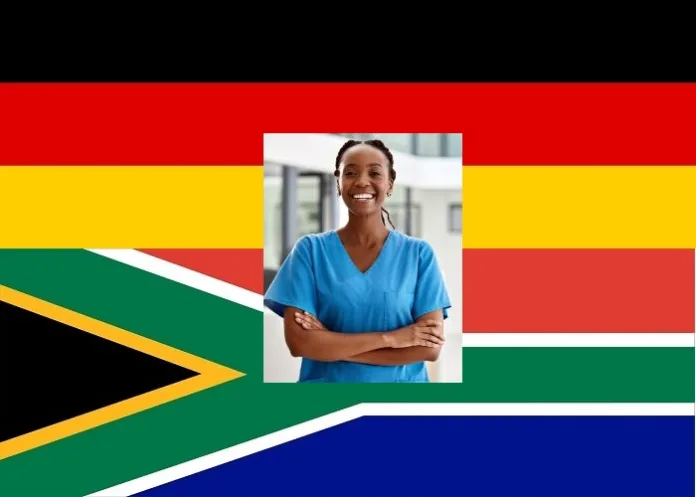Government is in talks with Germany to employ SA-trained nurses to fill vacancies in Europe’s largest economy, while, at home, the shortage of nurses, especially in rural areas, remains a concern, notes MedicalBrief.
Concern has also been raised, in both the private and public sectors, about insufficient nurses being trained in the face of a significant number of nurses due to reach retirement soon. At the same time, some 20 000 nurses in South Africa are unemployed.
The Democratic Nursing Organisation of SA (Denosa) last week joined the national Cosatu-led day of action in protest against, among other issues, “glitches” in public service systems had characterised the government’s poor service delivery for years, including not appointing nurses and the rising unemployment figures for the profession.
Denosa national spokesperson Sibongiseni Delihlazo said: “On the healthcare front, the government has constantly failed to meet the expectations of its commitments regarding payment of allowances, performance incentives, filling of vacant positions, procurement of equipment and medical supplies, and food for healthcare facilities.”
News24 reports that Delihlazo also said properly trained and qualified nurses were not being appointed.
“The absorption of nurses after completing studies and community service is an annual struggle. This is despite the number of nurses being produced, and the funding for their studies – mainly from government – being reduced every year, affecting the quality of nursing services at public healthcare facilities,” he said.
Denosa said Gauteng has about 10 000 unemployed nurses, followed by the Free State with 5 000, Limpopo with 3 000, Mpumalanga with 2 000, the Western Cape with 1 000, the North West with 500, the Eastern Cape with 350, and 200 in KwaZulu-Natal.
In Germany, however, a 2022 report published by the National Institute for Health said the country has been unable to fill up to 520 000 full-time nursing positions.
The World Health Organisation (WHO) and the International Council of Nurses (ICN) have revealed a worldwide shortage of 5.6m nurses, with the greatest need in South East Asia and Africa, reports People’s Gazette.
At least 7.3m nurses and midwives are currently employed in the European region, but the figure is believed to be inadequate to meet current and future needs.
Although Germany has the highest number (13.9 nurses) per 1 000 inhabitants in the EU, the country has also struggled to address the increasing need for qualified staff.
Despite having one of the best healthcare systems in the world, it is estimated that by 2030, it would need more than 300 000 nurses.
Several strategies to address the nursing shortages have been undertaken worldwide. These include improving working conditions, expanding recruitment, targeting qualified nurses who have left the nursing profession to return, recruiting internationally trained nurses, and improving remuneration.
Minister of Employment & Labour Thulas Nxesi confirmed an agreement was being concluded with Germany, reports BusinessLIVE.
“There’s (also) an agreement with Ireland. The number of South African construction workers in Ireland is shocking – there are numerous South Africans looking for opportunities outside,” he said at a jobs expo in Johannesburg last week, where government leaders warned SA’s unemployment crisis could ignite a “revolution”.
Specialist vacancies
The country has a little more than 22 000 nurses for more than 50m people, while specialist vacancies remain unfilled.
The private hospital sector has been outspoken about SA’s nursing shortage, with Netcare CEO Richard Friedland warning that this was putting a damper on the company’s growth prospects and threatening the provision of healthcare in the public and private sectors.
However, Denosa deputy secretary-general Khaya Sodidi said Denosa would not “block this programme while our youth are faced with the crisis of unemployment”.
“All we want to do is to make sure they are not exploited when they go to Germany. We have agreed to embark on a study tour [to Germany] to access their healthcare facilities and institutions.”
Labour analyst Michael Bagraim, also the DA’s deputy employment & labour spokesperson, said that with the talks between Germany and SA, the government was probably trying to “cover up the fact that people who have got skills are struggling to find employment in SA and are taking those valuable skills elsewhere”.
DA Shadow Minister of Health Michele Clarke said the reasons for the thousands of unemployed South African nurses was because the government was failing to address the crisis.
“As a result, the German Government is now employing our nurses,” she said.
“That country has seen the value of South African nurses and their vital role in a functioning health system, yet our government is happy to lose at least 20 000 nurses rather than address our own crisis.”
The nurses being lured to Germany should have been employed by the Department of Health to fill South Africa’s vacancies, she added. “Our nurses are often overworked and expected to give quality health care in the direst of circumstances. They are forced to work in unsafe facilities where basic sanitation and access to medication and necessary supplies are not a given. They will surely not have to face these horrendous conditions in Germany. And they should not have to face them here.”
She said the government was failing to “meaningfully address the nurse shortage”, and was continuing to block the private sector’s efforts to train nurses.
DA article – Germany succeeds where ANC fails: jobs for our unemployed nurses (Open access)
People’s Gazette article – Germany seeks recruitment of 500,000 nurses from Africa (Open access)
See more from MedicalBrief archives:
Nursing Council resists training of new nurses, despite dire shortage, HASA conference told
Gauteng Health admits to ‘critical’ shortage of nurses
SA’s public hospital staffing disaster: 12,000 vacancies for nurses and doctors
22 000 nurses for 50m South Africans, and no money for more
Global nursing crisis deepens as pandemic and staff shortages wreak havoc

